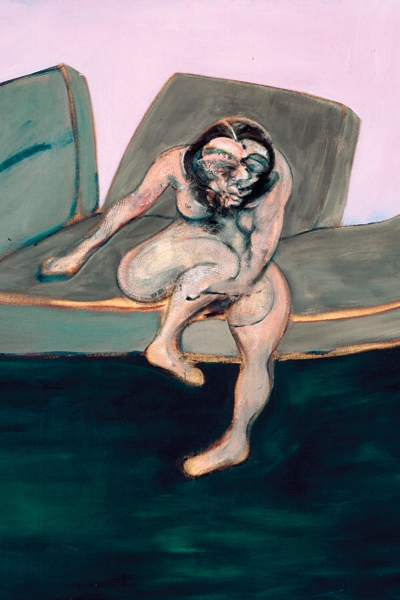‘And what do you do?’ asked Francis Bacon. ‘Er, I’m a cartoonist.’ ‘You are a chronicler of our age, yours is the art that counts, yours is art made history, I salute you!’ Bacon then stumbled off, shouting, ‘Who was that cunt?’
That was the Colony Room. Dangerous! Fasten your seat belts. It’s going to be a bumpy night, reading Sophie Parkin’s history.
I’d been taken to the club in the late 1950s by Jeffrey Bernard. I’d teamed up with him, eager to join his long downhill struggle, and he liked having around him people who were happy to self-destruct. I’d introduced him to Richard Ingrams, who had nervously taken him on as racing correspondent of Private Eye, dubbing him ‘Colonel Mad’.
The club, up a winding staircase, consisted of one room painted dark green, with the curtains drawn. To be a member, you had to be approved by Muriel Belcher. If she thought you could buy a round she called you ‘Cunty’ and you were allowed in. Pubs in those days shut at 2.30 in the afternoon and opened again at 5.30. At Muriel’s you had the thrill of drinking throughout the afternoon when you should have been working.
If you’d met Dan Farson in the morning you’d be greeted with ‘Dear boy, how nice to see you. How are you?’ Later that day this had metamorphosed into ‘I loathe you! You make me sick! If ever I can do you harm I will!’
Muriel’s little helper was the fearless Ian Board who served behind the bar. ‘I didn’t sleep a wink last night, so I had to get up and put a large brandy down my screech.’ I visited him in hospital just before he went to that barstool in the sky. They’d put him on a drip and removed him from all alcohol, and his once-luminous nose had shrunk to half its size.
After his death, the club was run by Michael Wojas, once Ian’s sidekick. But the parade had long gone by. It had one last gasp with Damien Hirst and YBAs being outrageous. But it never fully recovered from the loss of Bacon, Lucian, Farson, Minton, Melly — and, of course, Muriel.






Comments